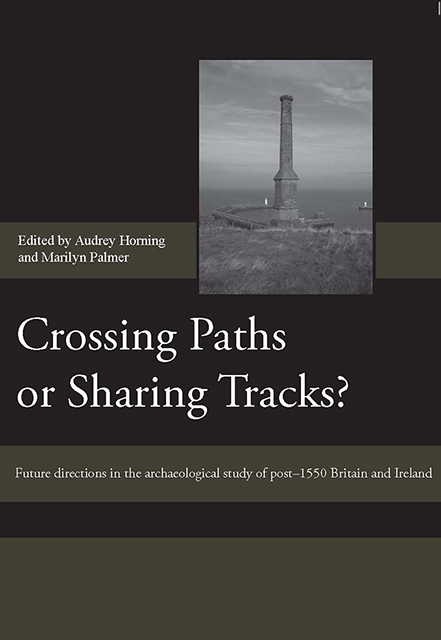 Crossing Paths or Sharing Tracks?
Crossing Paths or Sharing Tracks? Finds, Deposits, and Assigned Status: New Approaches to Defined Relationships
Published online by Cambridge University Press: 07 March 2023
Summary
Recent controlled excavation of archaeological sites of post-1550 Britain and Ireland, in bothresearch and rescue contexts, has often failed to integrate diff erent parts of the record systematically, leading to a breakdown between theory and practice. This chapter examines the relationship between deposit and assemblage, and thereby the use of deposit status designation. This research seeks to adopt a more accurate definition of status, overcoming the conceptual inadequacy that links find to deposit. The analysis of status will proceed on the following basic assumptions: firstly, that status is the relationship between the find and the context (or parent deposit); and, secondly, that this relationship is based upon information on the function, chronology and spatial characteristics of the finds and contexts. It will be demonstrated how the integration of finds and site data allows for more fruitful interpretation of excavation data. This approach helps to match site details withresearch agendas in both academic and commercial contexts, achieving maximum potential for research output.
INTRODUCTION
The role of the finds assemblage in archaeological interpretation has evolved over many decades, withthe relationships between assemblages and their parent deposits treated in many diff erent ways during the long development of archaeological field practice. A look at the last forty years of archaeological excavation reveals a steady increase in the number and manner of controlled excavation methods. Methods such as single-context planning and the Harris matrix have placed a focus upon establishing stratigraphic sequences and gaining better control over the recovery of finds. Overall, controlled excavation methods have been based on obtaining finds assemblages from clear contexts, rather than just recovering structural evidence and bits of treasure. This is, in part, a result of the development of contract-driven archaeology. In order to justify the expense of bothgovernment and private sector investment, the recovery of cultural heritage was argued to be necessary not just at the individual artefact level but as a collective assemblage.
These developments were all for the good of archaeological practice. However, this chapter examines what is believed to be a failing bothin general method, as well as a break between theory and practice. In essence, a breakdown has occurred in archaeology between the practices at the front end and the analysis at the back end.
- Type
- Chapter
- Information
- Crossing Paths or Sharing Tracks?Future directions in the Archaeological Study of Post-1550 Britain and Ireland, pp. 149 - 166Publisher: Boydell & BrewerPrint publication year: 2009
- 1
- Cited by


